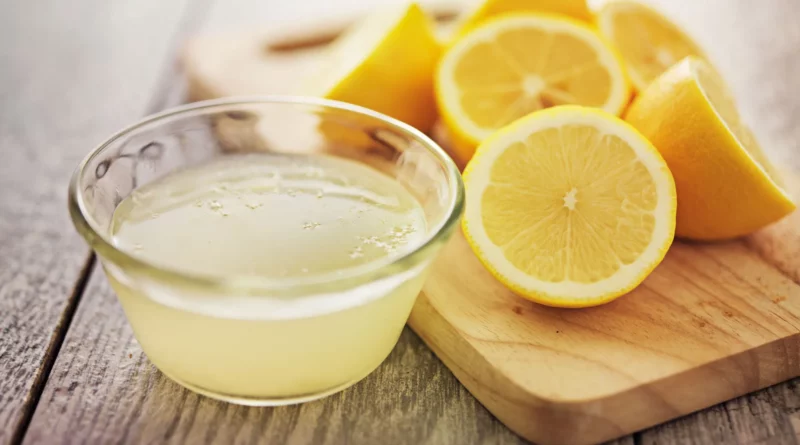National Lemon Juice Day [Aug 29th]
National Lemon Juice Day, observed annually on August 29th, is a day dedicated to celebrating the myriad ways lemon juice enhances our lives. Whether adding a burst of flavor to dishes, serving as a natural cleaning agent, or providing health benefits, lemon juice is a powerhouse in both the kitchen and the home. This day invites everyone to explore and appreciate the versatility and importance of this zesty citrus juice, which has been a staple in kitchens and households around the world for centuries.
The History and Origins of Lemons
Lemons, with their vibrant yellow hue and sharp, tangy flavor, have a rich history that traces back to ancient Asia. The origins of the lemon are believed to be in the region of Assam in India, northern Burma, and China, where wild varieties still grow today. The fruit is thought to have been a hybrid, likely between a bitter orange and a citron, which itself is one of the original citrus fruits. The exact timeline of lemon domestication is unclear, but it is believed that lemons were cultivated in southern Asia for thousands of years before being brought to other parts of the world.
As trade routes expanded, so did the spread of lemons. By the first century AD, lemons had reached the Mediterranean, where they were embraced by the Greeks and Romans. The Romans, in particular, valued lemons not only for their culinary uses but also for their medicinal properties. The fruit became a symbol of wealth and was often used as a decorative element in art and mosaics.
Lemons made their way to the Middle East and North Africa, where they were cultivated extensively. By the Middle Ages, lemons were well-established in the Islamic world and were introduced to Europe during the Crusades. The fruit quickly gained popularity in European courts, where it was used in both cooking and medicine. It wasn’t until the 15th century, however, that lemons were widely grown in Europe, particularly in the Mediterranean regions of Italy and Spain.
The Journey of Lemon Juice
While the lemon itself was valued for its myriad uses, the juice of the lemon became an essential commodity in its own right. Lemon juice’s journey from a simple byproduct of the fruit to a celebrated ingredient is a story of culinary evolution and innovation.
In ancient and medieval times, lemon juice was primarily used for its preservative properties. Its high acidity made it an effective means of preserving food, particularly in an era before refrigeration. This characteristic was especially important for seafaring cultures; lemon juice became a vital part of sailors’ diets to prevent scurvy, a disease caused by vitamin C deficiency.
By the time of the Renaissance, lemon juice had become a staple in European kitchens. It was used to flavor meats, fish, and vegetables, as well as to create refreshing beverages. The spread of lemon cultivation throughout Europe and the Mediterranean made lemon juice more accessible, and its popularity continued to grow.
Culinary Uses of Lemon Juice
Lemon juice is perhaps best known for its culinary applications. Its tart, refreshing flavor can brighten up a wide array of dishes, from savory to sweet. The acidity of lemon juice makes it a powerful flavor enhancer, capable of balancing the richness of fats, cutting through the heaviness of starches, and complementing the sweetness of desserts.
In cooking, lemon juice is used in marinades, dressings, sauces, and as a finishing touch to a variety of dishes. Its ability to tenderize meat makes it a key ingredient in marinades, where the acidity breaks down the proteins in meat, making it more tender and flavorful. Lemon juice is also a common ingredient in salad dressings, where it provides a tart contrast to the oil and helps emulsify the dressing.
When it comes to seafood, lemon juice is indispensable. It enhances the natural flavors of fish and shellfish, providing a bright, citrusy note that complements the briny taste of the ocean. A simple squeeze of lemon over grilled fish can elevate the dish, adding a fresh and vibrant flavor that is both subtle and powerful.
Lemon Juice in Baking
Lemon juice plays a crucial role in baking, where it is used to add flavor, moisture, and acidity to various recipes. In cakes, cookies, and other baked goods, lemon juice not only imparts a subtle tang but also interacts with baking soda to create a leavening effect, helping the dough rise and giving the final product a light, fluffy texture.
Classic desserts like lemon meringue pie, lemon bars, and lemon pound cake rely heavily on the fresh, zesty flavor of lemon juice. These treats have become iconic, especially in regions where lemons are plentiful. The tartness of lemon juice provides a perfect balance to the sweetness of sugar, creating a harmonious flavor profile that is both refreshing and indulgent.
In addition to its flavor, lemon juice also contributes to the texture and structure of baked goods. For example, in recipes that require buttermilk or yogurt, a small amount of lemon juice can be used to sour milk, creating a homemade version of buttermilk that adds moisture and tang to cakes and muffins.
Lemon Juice in Beverages
Lemon juice is a key ingredient in many beloved beverages. Lemonade, perhaps the most iconic of all lemon drinks, is a simple yet refreshing concoction that has been enjoyed for centuries. Made by combining fresh lemon juice, water, and sugar, lemonade is a summertime favorite that perfectly balances sweet and tart flavors.
In addition to lemonade, lemon juice is used in a variety of cocktails, from the classic whiskey sour to the crisp and refreshing lemon drop martini. Its acidity makes it a versatile component in mixology, where it is used to balance the sweetness of syrups and liqueurs or to add a burst of brightness to more complex drinks.
Lemon juice is also commonly added to water for a simple, hydrating drink with a touch of flavor. This practice has gained popularity in recent years, particularly among those looking to increase their water intake while enjoying the added benefits of vitamin C and antioxidants.
Beyond these popular beverages, lemon juice can be found in a wide range of drinks, from teas and infusions to health tonics and smoothies. Its ability to complement a variety of flavors makes it a staple in both traditional and modern drink recipes.
Health Benefits of Lemon Juice
Lemon juice is not only delicious but also packed with health benefits. It is an excellent source of vitamin C, an essential nutrient that supports the immune system, promotes healthy skin, and aids in wound healing. Just one lemon can provide over 30% of the daily recommended intake of vitamin C, making lemon juice an easy and natural way to boost overall health.
In addition to vitamin C, lemon juice contains a variety of other beneficial compounds, including antioxidants that help protect the body against oxidative stress and inflammation. These antioxidants, such as flavonoids and limonoids, have been shown to have anti-cancer and anti-inflammatory properties, making lemon juice a valuable addition to a healthy diet.
Lemon juice is also known for its alkalizing effect on the body. Despite its acidic taste, lemon juice has an alkalizing effect once metabolized, helping to balance the body’s pH levels. This alkalizing property is believed to promote better digestion, improve kidney function, and enhance overall health.
Another notable benefit of lemon juice is its natural diuretic effect, which helps to flush out toxins and excess fluids from the body. This can be particularly beneficial for those dealing with water retention or seeking to detoxify their system.
Lemon Juice as a Natural Cleaner
Lemon juice’s high acidity makes it an effective natural cleaner, capable of cutting through grease, removing stains, and neutralizing odors. Its antibacterial and antifungal properties further enhance its cleaning power, making it a popular choice for those seeking eco-friendly alternatives to chemical cleaners.
In the kitchen, lemon juice can be used to clean countertops, cutting boards, and sinks, leaving them fresh and sanitized. It is particularly effective at removing stains from cutting boards, especially those caused by fruits and vegetables. A mixture of lemon juice and salt can be used to scrub away tough stains, leaving surfaces clean and bright.
Lemon juice is also a great natural deodorizer. It can be used to freshen up garbage disposals, refrigerators, and other areas prone to unpleasant odors. Simply cutting a lemon in half and placing it in the refrigerator or running it through the garbage disposal can help eliminate odors and leave your home smelling fresh.
In addition to its cleaning properties, lemon juice is also used in laundry to brighten whites and remove stains. Adding a cup of lemon juice to a load of laundry can help remove yellowing from white clothes and leave them smelling fresh and clean.
Celebrating National Lemon Juice Day
National Lemon Juice Day is the perfect opportunity to explore and celebrate the many uses of lemon juice. Whether you’re a seasoned cook, a health enthusiast, or someone looking to freshen up your home, this day offers a chance to appreciate all that lemon juice has to offer.
One way to celebrate is by trying out new recipes that feature lemon juice as a key ingredient. From classic lemon meringue pie to refreshing lemon sorbet, there are countless ways to enjoy the bright, tangy flavor of lemon juice in your cooking and baking.
If you’re looking for a more relaxing way to celebrate, consider enjoying a refreshing glass of homemade lemonade or a lemon-infused cocktail. Take some time to unwind and savor the simple pleasures of life, with lemon juice adding a burst of sunshine to your day.
For those interested in natural living, National Lemon Juice Day is a great time to experiment with using lemon juice as a natural cleaner or beauty treatment. Try making your own lemon-scented cleaning products or use lemon juice as a natural toner for your skin. The possibilities are endless, and the results are sure to leave you feeling refreshed and revitalized.
Fun Facts About Lemons and Lemon Juice
- Ancient Origins: Lemons are believed to be a hybrid between a bitter orange and a citron, and have been cultivated for over 2,000 years.
- Symbol of Wealth: In ancient Rome, lemons were considered a symbol of wealth and were often depicted in mosaics and artwork.
- Sailor’s Savior: British sailors were required to carry lemons on long voyages to prevent scurvy, a practice that earned them the nickname “Limeys.”
- Culinary Versatility: Lemon juice is a key ingredient in cuisines around the world, from Mediterranean dishes to Asian stir-fries.
- Health Booster: Just one tablespoon of lemon juice contains about 7% of the daily recommended intake of vitamin C, making it a simple way to boost your health.
The Enduring Appeal of Lemon Juice
Lemon juice has proven to be much more than just a simple ingredient; it is a versatile and powerful tool in both the kitchen and the home. As we celebrate National Lemon Juice Day, it’s clear that this citrus staple has earned its place in our lives, providing flavor, health benefits, and natural cleaning power.
Whether you’re using it to enhance a dish, brighten up your home, or boost your health, lemon juice is a true multitasker that continues to stand the test of time. On August 29th, take a moment to appreciate the humble lemon and all the ways its juice can enrich your life.
Discover more from City Towner
Subscribe to get the latest posts sent to your email.




